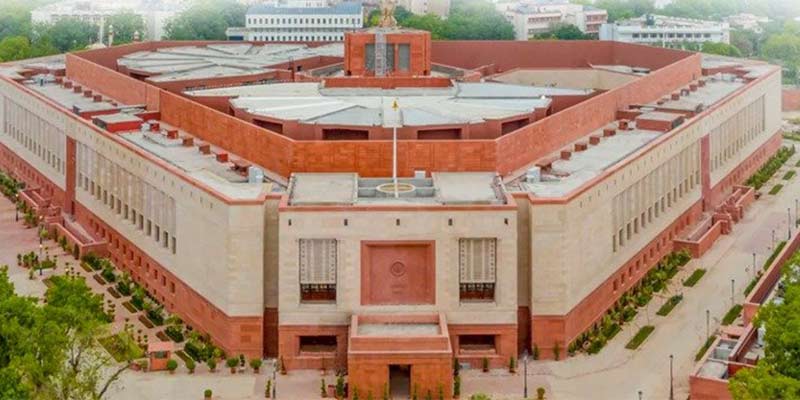- India
- Dec 08
President Murmu accepts resignations of 3 Union Ministers
• President Droupadi Murmu accepted the resignations of Union Ministers Narendra Singh Tomar, Prahlad Singh Patel and Renuka Singh Saruta, who successfully contested the recent Assembly polls.
• The President accepted their resignations from the Union Council of Ministers as advised by Prime Minister Narendra Modi under the provision of Article 75(2) of the Indian Constitution.
• According to the Constitution, Union Ministers are appointed by the President on the advice of the Prime Minister. The ministers shall hold office during the pleasure of the President.
• Union Ministers Tomar, Patel and Saruta resigned as the BJP had decided that all of its 12 MPs recently elected to state Assemblies will quit Parliament, amid strong indications that they may join the new governments in Madhya Pradesh, Chhattisgarh and Rajasthan.
• Further on the advice of the Prime Minister, the President gave additional charge of agriculture ministry and farmer’s welfare to Arjun Munda, while Minister of State for Electronics and Information Technology Rajeev Chandrasekhar has been given additional charge of jal shakti as Minister of State.
• Shobha Karandlaje, Union Minister of State for Agriculture and Farmers’ Welfare, has been assigned the charge of the Minister of State in food processing industries in addition to her existing portfolio.
• Minister of State for Health and Family Welfare Dr. Bharti Pravin Pawar has been given additional charge of the Minister of State in the ministry of tribal affairs.
• Other MPs who quit are Rakesh Singh, Udya Pratap Singh and Riti Pathak from Madhya Pradesh; Kirodi Lal Meena, Diya Kumari and Rajyavardhan Singh Rathore from Rajasthan and Gomati Sai and Arun Sao from Chhattisgarh.
• All except Meena are Lok Sabha members. Meena is a Rajya Sabha member.
Qualification for Membership of Parliament
• In order to be chosen a Member of Parliament, a person must be a citizen of India and not less than 30 years of age in the case of Rajya Sabha and not less than 25 years of age in the case of Lok Sabha.
• Additional qualifications may be prescribed by Parliament by law.
• For contesting an election as a candidate a person must be registered as a voter. Section 4(d) of Representation People Act, 1951 precludes a person from contesting unless he is an elector in any parliamentary constituency.
A Member of Parliament shall vacate his seat in the following cases:
• Article 101 deals with the circumstances in which the seats of Members of Parliament will become vacant.
• No person shall be a member of both houses of Parliament and provision shall be made by Parliament by law for the vacation by a person who is chosen a member of both houses of his seat in one house or the other.
• No person shall be a member both of Parliament and of a House of the Legislature of a state.
• If a person is chosen a member both of Parliament and of a House of the Legislature of a state, then, at the expiration of such period as may be specified in rules made by the President, that person’s seat in Parliament shall become vacant, unless he has previously resigned his seat in the Legislature of the state.
• If a member of either House of Parliament is absent from all meetings for a period of sixty days without permission of the House, the House may declare his seat vacant.
• In computing the said period of sixty days, however, no account is taken of any period during which the House is prorogued or is adjourned for more than four consecutive days. The period of sixty days referred to in the Constitution means a single unbroken period of sixty days and for invoking the provision of the Constitution, the absence has to be continuous.
• Also, if a person has contested elections on two seats in a House and is elected on both, he needs to choose one. If he fails to do so, both the seats will become vacant.
Manorama Yearbook app is now available on Google Play Store and iOS App Store

